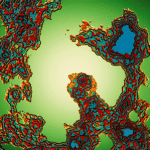The discovery of pot’s astonishing medical potential is the most compelling new reason for legalizing the plant.
For many years, the federal government has subsidized studies designed to prove the negative effects of marijuana, while blocking inquiry into its potential benefits. Ironically, the government’s steadfast search for harm has yielded remarkable scientific insights that explain why cannabis is such a versatile remedy and why it is the most sought-after illicit substance on the planet.
Cannabis and the unique chemical compounds produced by the plant, called cannabinoids, have been at the center of one of the most exciting—and underreported—developments in modern science. Research on marijuana’s effects led directly to the discovery of a molecular signaling system in the human brain and body, the endocannabinoid system, which plays a crucial role in regulating a broad range of physiological processes: hunger, sleep, inflammation, stress, blood pressure, body temperature, glucose metabolism, bone density, intestinal fortitude, reproductive fertility, circadian rhythms, mood and much more.
Within the scientific community, the discovery of the endocannabinoid system is increasingly recognized as a seminal advance in our understanding of human biology. The Rubicon was crossed in 1988, when a government-funded study at the St. Louis University School of Medicine determined that the mammalian brain has an abundance of receptor sites—specialized protein molecules embedded in cell membranes—that respond pharmacologically to compounds in cannabis.
Published in full in The Nation. This article was reprinted by Project CBD with permission. It may not be reproduced in any form without approval from the source. Martin A. Lee is the director of Project CBD. He’s authored and edited several books, including Smoke Signals, Acid Dreams, and The Essential Guide to CBD.







